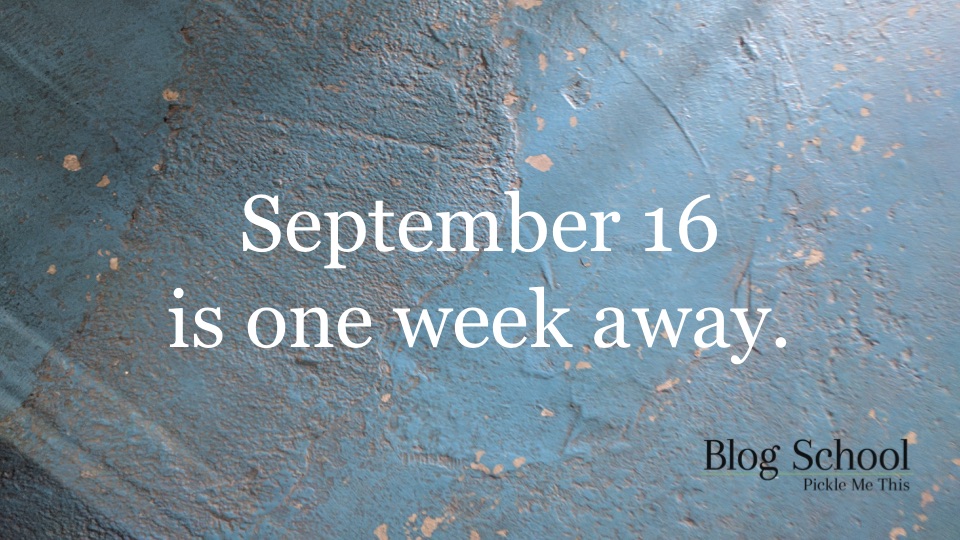September 24, 2019
Preoccupations
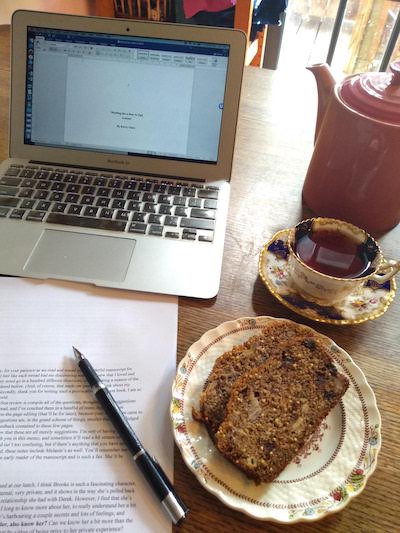
In my blogging life, I’ve made a point of trying not to apologize for the focus of my posts. I think that a sustainable blog should be about what one’s life is about, or even that it has to be about that in order to be sustainable. So we shouldn’t worry about our blogs being all about our new babies, or our illnesses, or vacations, at least not if these are what our lives are all about. Whatever our preoccupations: we get to blog them. And for me, lately, those preoccupations have been all the things that I’m making—Blog School, Briny Books, and working on revising my novel, which is due partway through October. The novel in particular, which I’m focussing on for 90 minutes every weekday by blocking social media apps on my phone and my laptop and getting down to business. I spent most of last week making notes on my manuscript, adding my editor’s with them, asking questions, and suggesting possibilities. Kind of like marking out the space in a field where the work must be done, where to get digging, and this week that work has begun in earnest, and I love it. This might be my favourite part of the entire novel writing process (but then I think I say that about every part of the novel writing process). Still discovery, just as the first draft is, but instead of discovering plot points and twists, I’m discovering patterns and connections that I might not have seen the first time around. Adding depth and texture to the story I’m telling, and so much it seems like it’s beyond my control. As though I’m merely a conduit. Such as the part I figured out yesterday, the familiar and yet archaic word that my character ponders the meaning of. I don’t actually know the meaning either, so I looked it up, and the definition of the word turned out to be precisely one of the central images of the entire book, as revealed in the final third. I had no idea, but the book knew. And my job at the this point is just to let all these connection happen and allow the light to come through.
September 23, 2019
Gleanings
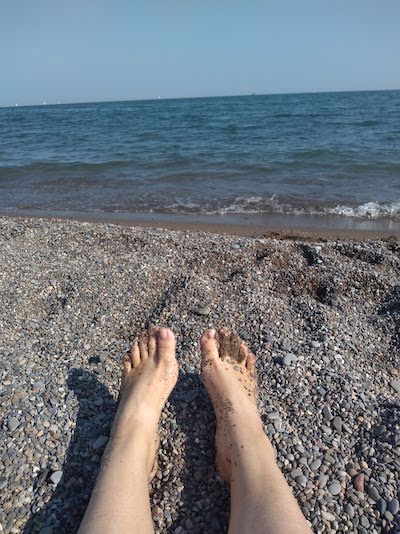
- We must be brave enough to change the things we can.
- I dared to trust, to try something that was ever-so-slightly beyond me…
- On Mondays we talk about cancer.
- But really, in a still life, who every really notices the table?
- For me, noticing the good things – however tiny – has been a sort of hook into the world when I had been feeling like I was drifting.
- Hosting a dinner party, or brunch, or lunch, or happy hour is a magical thing.
- Some people said, It must be like a death! It was nothing like a death. It was like burning a cake.
- Okay” is one of my favourite words.
- The satisfaction is almost entirely in the process, the weighing and testing, and I know that the resulting work is never quite what I thought it would be.
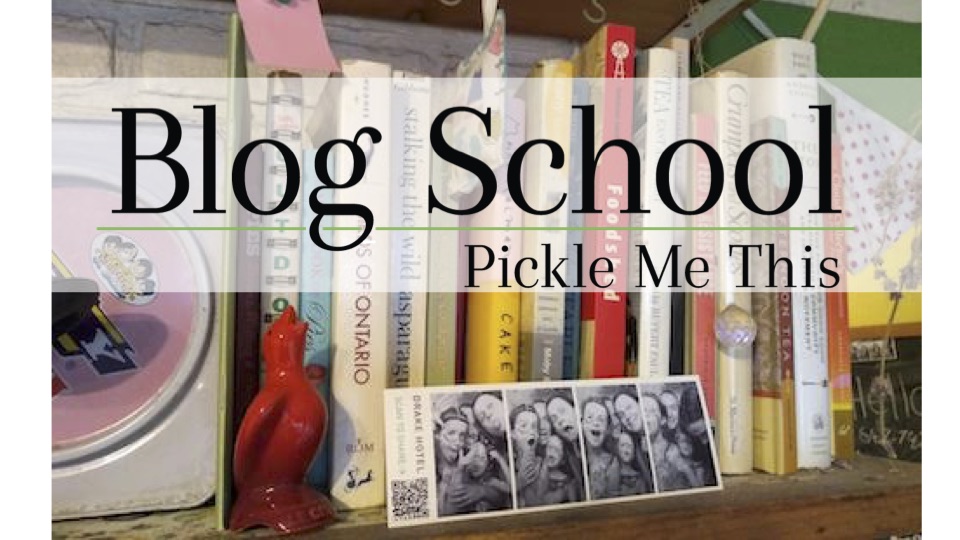
September 17, 2019
Waffles, Waffles, Waffles
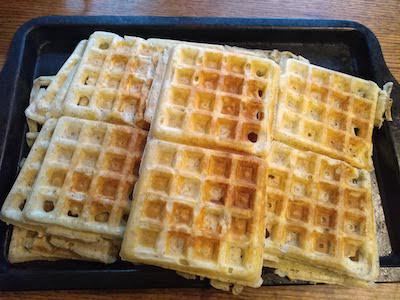
One of the things I am most proud of and amazed at having accomplished in my life is a Baby Book for my second-born child. I was never going to be a perfect mother, and being a second child definitely would inevitably suck in all kinds of ways (secondhand snowsuits, no one appreciating the miraculousness of things like you knowing how to roll over, and basically not being bathed for two years) but at least she was going to have a Baby Book, a record of those precious blurry days. Though it was less of a burden for me to assemble than it might have been for other mothers of two—her elder sister was all the way to four by then, and I also spent the first three months of her life on co-parenting duty instead of struggling alone because my husband had taken parental leave, which meant time for naps, and books, and writing down all the things that we’d never remember.
When Iris was two, I added a whole page of notes to the Baby Book, though she was not a baby anymore. But it seemed like there were more things worth remembering then, once she was able to speak, and her remarkable personality had formed. “Things Iris Says,” was how I’d titled this page, along with the date, and I turned to this page just the other day when Iris had brought her Baby Book down from the shelf (and how glad I am that she has a Baby Book, that I bothered to put the effort in. Both my children are so fascinated with their baby selves, and will look at all records of their early periods in a way that’s inexhaustible).
“Things Iris Says,” I read aloud, excited to see what forgotten treasures might emerge from this time capsule, but then. Oh. Almost everything that Iris said when she was two had basically found its way into our family vernacular, and it’s how we all talk all the time now. (Perhaps when I say “we all,” I just mean me.) “Atcheam,” for ice-cream, and “fuff-eye” instead of “butterfly.” And “ra-see-see-wah” for rice krispie square. But then Iris is a little bit like this, in our family as well as in her own peer group. Totally weird, completely absurd, and at first, we’re like, “What are you doing?” And then it doesn’t take long before we’re doing it too.
But really, I want to talk about Teen Titans and waffles. Not that I have actually ever watched Teen Titans Go, but it’s Iris’s favourite show, and somehow without me ever having actually watched it, it’s seeped into my DNA, and I think it’s also the inspiration behind what became our family’s new year’s resolution for 2019, which was Get a Waffle Maker. Part of our pattern of Keep the Stakes Low to Avoid Disappointment. If you package up all your dreaming in the hopes of picking up a secondhand waffle maker from Value Village for $6, things are probably going to work out fine.
Get a Waffle Maker became our family dream because there is a song from Teen Titans Go about waffles—like most things about Teen Titans Go, it’s catchy and also extremely annoying. I am also very impressionable, particularly when it comes to glutinous goods, and so eventually, I had waffles on the brain, perpetually. We got our waffle maker sometime in January, which means our annual goal was achieved, and as a family we could just sit back and relax and be delighted by having accomplished what we set out to do. And make waffles every Sunday.
The waffle maker has been a game changer. I used to make pancakes every Sunday, and they were good, but lots of work, and also results would vary. But now the waffle maker does all the work for me, in way less time, and all I need to do is pour the batter in and then read the newspaper and drink my tea while waiting for the light to turn green—so simple. I am partial to Smitten Kitchen’s Buttermilk Waffle recipe. I am also partial to adding poppyseeds and millet to everything. Waffles, waffles, waffles, indeed. I love them, their taste, and neat geometry, and how leftovers could be turned into cream cheese jam sandwiches for tomorrow’s lunches, and all the places where our children’s preoccupations take us.
Even if just to the appliance section at the secondhand store. Hooray for being goal-oriented.
September 16, 2019
Gleanings: The BLOG SCHOOL LAUNCH DAY EDITION!

- But, in blogging, I found my own purpose.
- June to September
- 9 books about trees
- One of the most enlivening side effects of these movie marathons is that I get so involved in the dream vision of movies that it becomes a lens that transforms the everyday world.
- The years of dithering and backtracking as I wrote the novel now felt like a blessing that allowed its completion to sync up with this moment-within-a-moment.
- I had gone in looking for a mystery that featured trees.
- Writing is gathering.
- Feeling a bit shit? Well maybe some of these things will make you feel a wee bit less so?
September 12, 2019
What Kind of Blogger Are You?
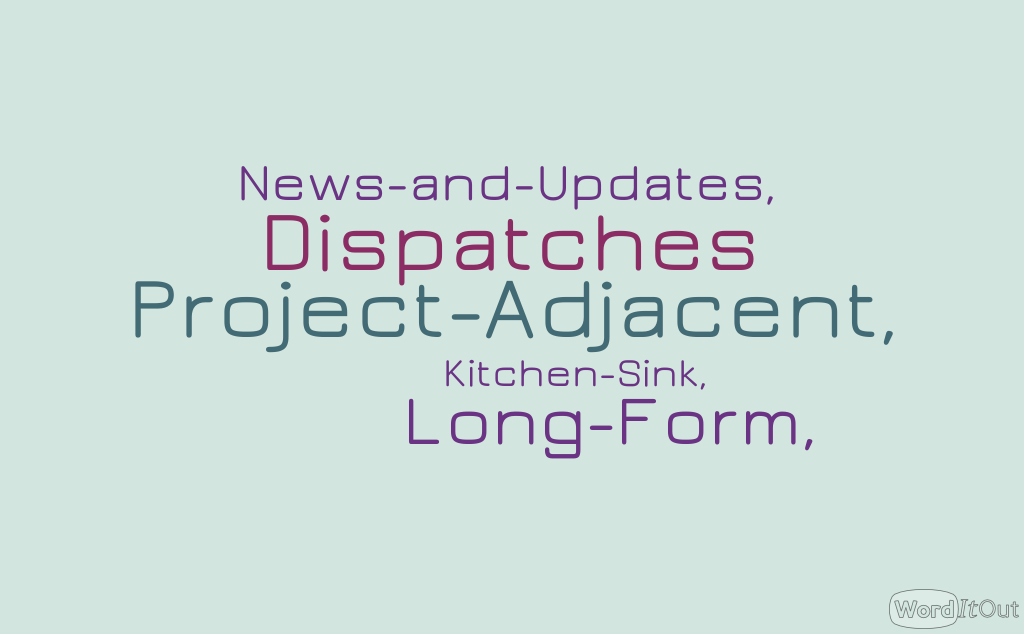
I made a quiz: What Kind of Blogger Are You?
And okay, to say there are but five kinds of bloggers is definitely reductive, but I give you these five different kinds of bloggers just to demonstrate how divergent people’s different approaches to blogging can be. And to emphasize that these five categories aren’t meant to be the end of the question of “how should I blog?” but instead the beginning of a process of the blogger gaining a broader understanding of their approach to and vision for their blog and then daring to venture forth to make/design/shape a blog that suits one’s own creative purposes and even makes one’s experiences richer.
Project-Adjacent Blogger: Your ideal blog is part of another project that you’re working on—this is great for artists, writers, or entrepreneurs. You use your blog to keep track of your progress, to share interesting ideas and revelations about your work, and to incite interest in your project. (You can also do this kind of blogging on your social media platforms.) Your blog can be easy to maintain because—ideally—your central project delivers you content all the time and it can fit nicely into your schedule. Your blog can also help you maintain your passion, connect with a like-minded audience, and think through problems with whatever it is you’re working on.
A Long-Form Blogger: Brevity is not for you, and Twitter is stupid and exhausting. No, your blog is all about depth and connections and who says that a blog can’t have footnotes! You’re driven to write your posts by genuine passion and curiosity, though you must be careful to pace yourself and not become too overwhelmed by the labour of your blog. You love that the work you’re doing on your blog (deep and thoughtful) runs counter to everything that’s so terrible about the internet. You do remember to break up your posts with images, however, with makes them much more reader-friendly. You might want to think about offering readers the alternative of receiving your posts via email as well, so check out some newsletter platforms.
A News-and-Updates Blogger: Truth: you’re just not that keen on blogging. And that’s okay! But it’s great to have an easily-updatable part of your website and having a blog helps your website’s search engine rankings too. You update your blog when you have news to share or an event to publicize. For you, the blog is a very practical tool.
A Dispatches Bloggers: Your blog is where you report back from the front, whether that front is an exotic locale (maybe you’re a travel blogger!) or from amidst a pile of dirty laundry (maybe you’re a mommy blogger!). Your blog is a way for you to stay connected with people in other places, and deliver the news of how it is where you are. Your posts are usually brief but frequent, and some readers might find them mundane, but those readers are not your readers then. One day you will look back and be very grateful for the record you’ve kept of this time in your life (instead of just posting your story as a Facebook update and sending it out into the ether…).
A Kitchen Sink Blogger: And by “kitchen sink,” of course, we mean “everything but the…” Your blog is an array of your fascinations and your preoccupations—it’s all a bit random, but YOU are the through-line. It’s a bit self-indulgent, but shouldn’t any unpaid labour be just that? This kind of blog is especially interesting (and radical) in a moment where online identifies are supposed to be tidy and streamlined. But not you—you’re keeping the internet interesting. And what an excellent public service that is!
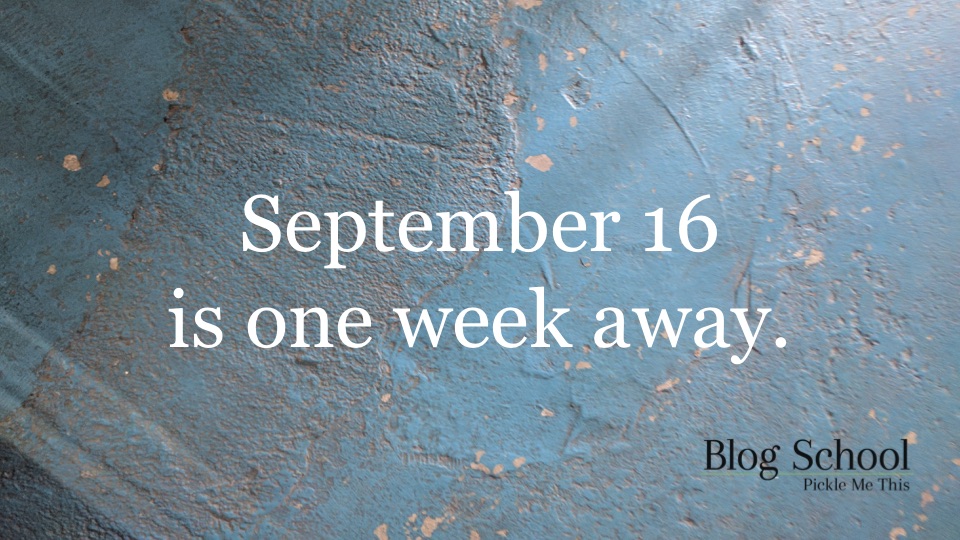
September 11, 2019
An Acceptable Time, by Madeleine L’Engle

When one day I’m asked the inevitable question: “What was the best thing that you did in 2019, Kerry?”, the answer is going to be: I resolved to read a whole pile of books by Madeleine L’Engle. I owe so much to whomever designed the nice looking recentish paperback editions of L’Engle’s Austin series, and to the librarian who decided to purchase them for the library where I was searching out middle grade titles for my daughter. And there they were—Meet the Austins, The Moon By Night, and The Young Unicorns. I’d dabbled in L’Engle’s Austin series years ago, although her Wrinkle in Time series was more foremost in my mind and I still even have the first three novels in my collection. Without those spiffy library paperbacks, I probably wouldn’t have partaken, but they were good looking, so I signed out all three, and imagined that Harriet and I would read them together.
I passed on to her Meet the Austins, but then I read the next book in the series and decided that Harriet probably wouldn’t appreciate the rest. When she’s a little bit older, and a bit less prone to being spooked about the possibility of nuclear annihilation. It turned out these were novels for me after all, and I loved them. As L’Engle’s A Swiftly Titling Planet has long done (I read that book eighteen years ago today) they brought me strength and solace. It was a long, hard winter and I remember reading The Young Unicorns with head lice, and the books made me feel so much better. I read all the Austins, and then began the Polly O’Keefe books, and read A Severed Wasp because Suzy Austin features—and read A Small Rain too, because it’s about the protagonist of A Severed Wasp. And then finally the last book I had to read was An Acceptable Time, which is about Polly O’Keefe, but which is not technically a “Polly O’Keefe” book, because it’s set in L’Engle’s “kairos” time and is the fifth book in the Wrinkle in Time series. Which I was less compelled by, because it was the realism of the Austin series that drew me more than the sci-fi fantasy elements of Wrinkle. (I am really boring. I am the type of reader who only likes the parts of the Harry Potter books where he’s with the Dursleys.)
But because I am nothing if not a completist (and because I was feeling out of sorts on the weekend, and reading Madeleine L’Engle is a wonderful way to deal with that), I finally tackled An Acceptable Time. Which takes place the year after A House Like a Lotus, and Polly has moved to live with her grandparents at the property we all know from Wrinkle. And guess who she finds outside in the bushes, but actual Zachary Grey, the most unappealing character in all of literature, who never seems to have anything better to do than traverse the globe in pursuit of women who are too young/good for him and them place them in perilous situations.
At first, I thought maybe this time would be different. After all, this book was written 25 years after Zachary Grey first turned up—maybe he’d finally learned to know better. He seems less rude and more interesting at the beginning of the book for sure, and is interested in the ancient civilization whose artifacts are appearing on Polly’s grandparents’ property. Maybe Zachary’s trajectory would be different this time? But this was not to be.
There is a whole storyline when Polly and Zachary become trapped in a tesseract and are taken 3000 years into the past, and everyone wore animal skin tunics and to be honest I just didn’t care in the slightest and skimmed this part. Although I loved this idea that Polly grandparents had built their pool on top of an underground spring that was an ancient holy place, where a lake had been before, and the waters are a portal (and Polly is good at swimming, having been raised on islands, because her father is a marine biologist). Anyway, Zachary wants to go into the past because he has this idea that it will heal his ailing heart, and then it turns out that Polly’s going to be made a blood sacrifice (naturally) and this doesn’t bother Zach in the slightest. He eventually has Polly kidnapped, put in danger, and when she gives him a hard time about this, he storms off: “Polly, I wanted to talk to you, but I can see there’s not point when you’re being unreasonable.” I was all for L’Engle being willing to kill Zachary off, but tragically this does not happen….
Anyway, now that I’ve finished reading these books, I really want to read L’Engle’s Crosswicks Journals, and possibly reread her Camilla, which I loved when I was younger, and then her later book about the same character, published in 1990s, which is not meant to be good, but I think having come to a wider understanding of L’Engle’s work, I might just find it interesting.
September 11, 2019
Turning the Page on Cancer
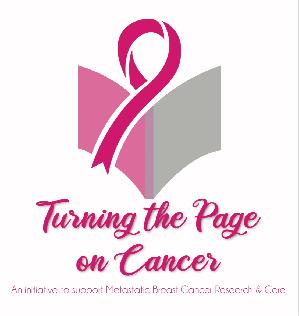
Did you ever have a dream of devoting AN ENTIRE DAY to reading? Did you ever dream of helping to wipe out metastatic cancers? Ever thought of you doing both with one fell swoop? I sure did, which is why I signed up for the Turning the Page on Cancer Read-a-Thon, which takes place October 20, with proceeds going to research for metastatic cancers. I heard about this fundraiser from my friend Melanie, who I met online more than a decade ago through Canada Reads and who was diagnosed with Stage IV Metastatic Breast Cancer in 2015—so a place where books meet raising funds for metastatic cancers in a non-tacky way seems like an incredible way do something to support my friend. She is also taking part in the Read-A-Thon and you can donate to her here if you’d like to. Both of us have surpassed our initial goals (AMAZING!!), but please donate if you are able, or join the team yourself if you’re in the mood for some marathon reading (ALWAYS).
In the meantime, I’m in heavy training, building up my arm strength and stamina. I’ve promised to buy my children whistles and hope they’ll spend the day in tracksuits bringing me water bottles and cheering me on as I read from 8am until midnight. I’d love to break $1000 by the Read-A-Thon day, and really appreciate everybody’s support.
September 10, 2019
Worry, by Jessica Westhead
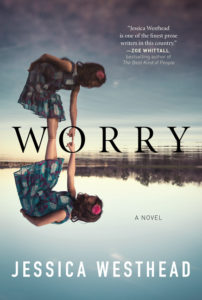
My friend Jessica Westhead’s roots are showing in her new book, Worry, which follows two acclaimed short story collections and another novel. While ostensibly Worry is a departure—a novel underlined with darkness and suspense, Westhead’s first book with a new publisher, a book marketed to appeal to “fans of Little Fires Everywhere and Truly Madly Guilty“—it’s still undeniably a work of Westhead, with the same attention to the peculiarities of relationships and personal dynamics, misfit characters, and a refusal to flinch in the face of pain or social awkwardness.
And there is social awkwardness aplenty as Ruth arrives at her friend Stef’s new cottage, along with her three-year-old daughter Fern. Awkward from the start, because Stef’s not home, as Ruth is informed by a neighbour, Marvin, who drifts along to the property on a paddle board, and this sets the tone, Ruth with her adherence to rules and schedules, Stef’s refusal to do the same—plus Marvin makes Ruth uncomfortable. Further, Stef and Ruth have a history that stretches back for decades, and she’s even Ruth’s husband’s boss—their relationship has always been complicated. And how complicated their friendship truly is turns out to be one of the novel’s great revelations.
Who is friend and who is foe? What is safety and what’s a threat? The lines are blurred and the stakes have never seemed so high as they are in our contemporary moment of parenting. Ruth’s anxiety about her daughter (and everything) is palpable throughout the novel, and it’s not clear to the reader whether or not it’s unfounded.
Westhead credits Elisabeth de Mariaffi in the book’s acknowledgements for inspiring her “to write my own version of a scary story,” but I see other inspiration too—the way a short story writer turns into a suspense novelist, the agility with which the writer moves from scene-to-scene. That perhaps to move from short stories to suspense-filled novels is not such a leap after all—or maybe leaping is the very point. In Worry, Westhead demonstrates that leaping is precisely what she knows how to do, and her novel delivers with the most assured and powerful landing.
September 9, 2019
Gleanings

- Your responsibility is what you can control.
- So, if I’m getting this correct, the universe is telling me to be generous
- Blogging about my teaching prods me to reflect on it rather than just get through it and move on; I think it has made me a better teacher as a result.
- One can’t think too much about the idea of a dozen almost naked bodies sharing a large, be it chlorinated, bath tub.
- Let’s generously share our history, our knowledge and experiences, the lessons we’ve learned and our hopes for their futures.
- The main thing I learned about baking this summer is that many things are cake.
September 16 is one week away, which means one more week for you to receive 15% savings on Blog School: Pickle Me This with discount code “early bird”. Find out more here…
September 6, 2019
Book News: Waiting for a Star to Fall
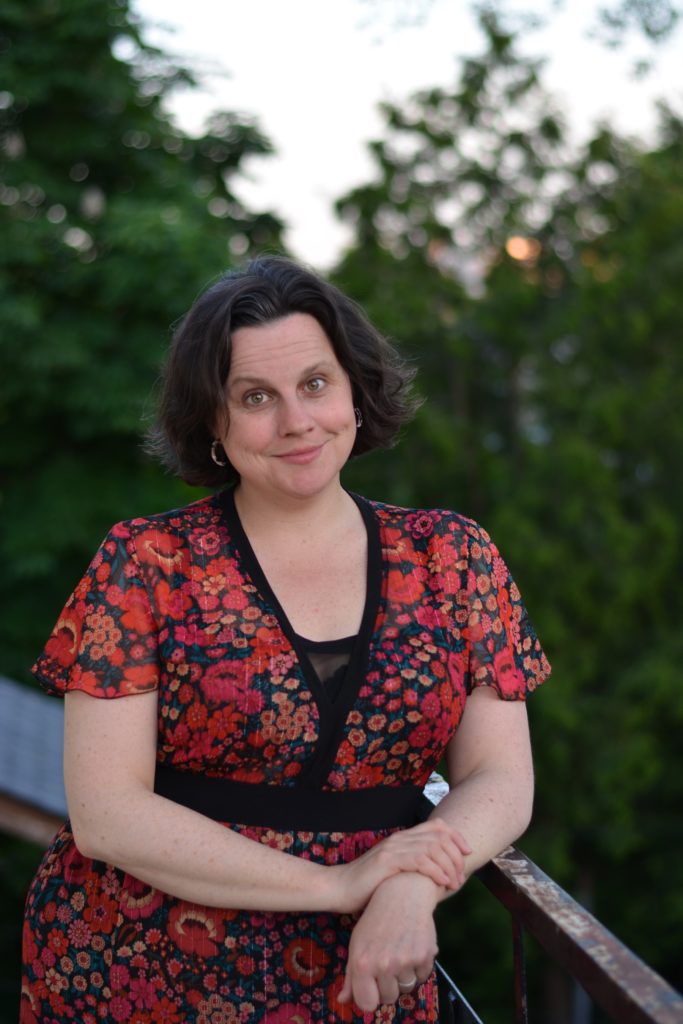
It is with more joy than you can imagine that I write you with the news that my second novel, Waiting For a Star to Fall, will be published next summer in Canada and the US by Doubleday Canada.
For fans of Joanne Ramos and Zoe Whittall, and Emily Giffin, a sensationally gripping and resonant new novel about a young woman caught in the midst of a political scandal.
When political superstar Derek Murdoch is brought down by decade-old allegations of sexual misconduct, his on-again/off-again girlfriend Brooke is left to process the situation. Derek’s reputation is being dragged through the mud because of his propensity for dating much-younger women who work for him–but Brooke knows the situation is more complicated than that. Never mind that she was once his young employee too. . . .
As the public makes up its mind about Derek, Brooke is forced to re-examine the story of her relationship with him–a position made even more complicated by the fact that she and Derek are now estranged after a heartbreaking betrayal. She’s shared the reason of their breakup with no one–but now she fears it may rise to the surface.
Torn from the headlines, Waiting for a Star to Fall is a novel for the #MeToo era, an absorbing story that examines the complex dynamics of politics–and sexual politics–and questions the stories we tell about people in the public eye, and the myth-making of men.
Two years ago (or thereabouts), my friend May bought me a bought that said NOVELIST on it, a title I’d always felt strange assuming, because it seemed kind of presumptuous. even if I had just published my first novel. (Maybe it was all just a fluke?)
I’ve always been a bit wary of this idea that it matters what you call yourself at all, because it’s what you do that counts, not who you are. As a person who writes a lot, I have a certain impatience listening to writers try to justify not writing, and how you’re still a writer anyway when you don’t, blah blah blah. What if instead of having this conversation, I would think, you just sat down and actually wrote something?
Now I understand where this kind of sentiment comes from, the ways in which many women have trouble assuming authority or owning their experience, undermining themselves, the same way that Shirley Jackson was just a housewife. But it’s still putting the cart before the horse, I think, to imagine that learning to call one’s self a writer or “novelist” is even remotely the answer to the question of how to get to be a published author. (I read an old, old pre-Pickle blog post recently in which I worried that I’d spent far more time thinking about being a writer than actually writing. I was definitely on to something there…)
But even still, over the past two and a half years—as my first novel came into the world, and then I wrote two more books, and faced rejection and uncertainty about my future as a writer at all (let alone a “novelist”)—that mug served me a kind of talisman. That I was also doing the work of writing is fundamental to this story, but I came to understand how important it can be to own this little piece of legitimacy, even if it’s one that’s carved into a mug. But it mattered. It helped me keep going—and possibly keeping going is more vital to success than anything else in the world, that which can be written on a mug and otherwise.
And the other thing that helped me keep going was, as always, my blog, particularly this year, which I entered without a real sense of anything to look forward to creatively, and so I decided to delve back into the DIY blogging ethos and make those things to look forward to myself. After years of talking about creating an online blogging course, I decided to go for it—Blog School launches September 16. I also dreamed Briny Books into being, which turned out to be an altogether successful project, a triumph, even—the second round of seasonal selections will be coming your way in October.
And then to have a book deal, with the publisher/editor of my dreams, even, on top of that? More goodness than a person could ever ask for, really, and all of this a reminder that when all seems lost and hopeless, getting off the floor where you’ve been lying curled up in the fetal position is probably the best thing to do eventually.
Who knew?
